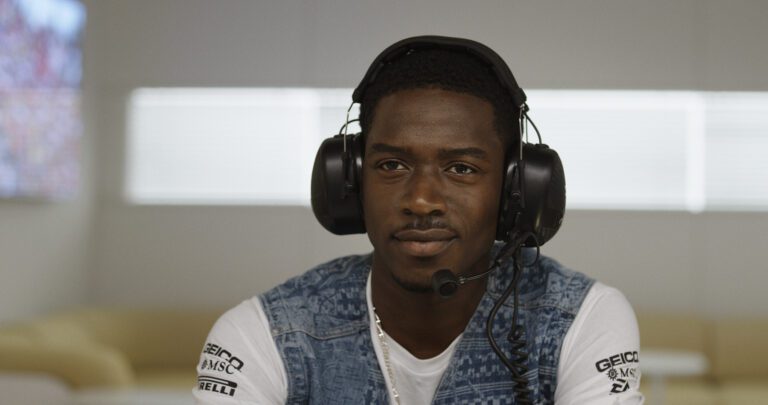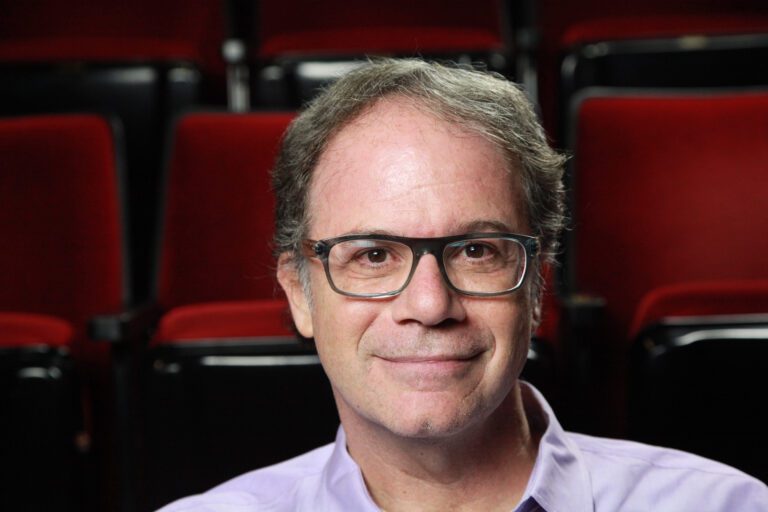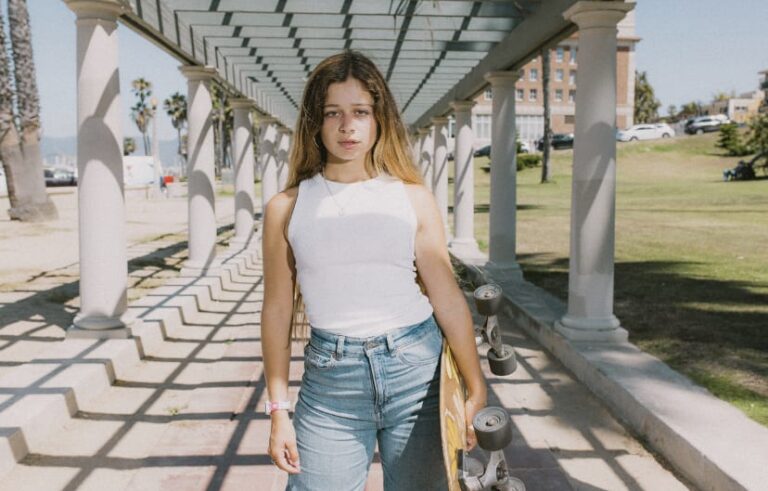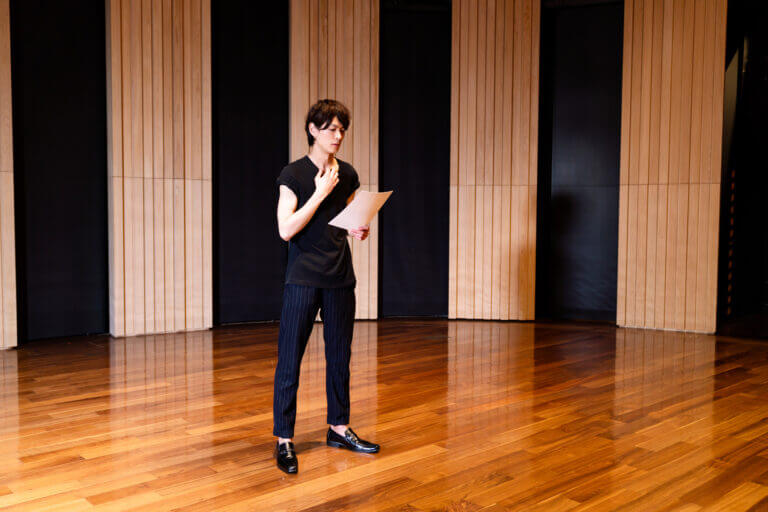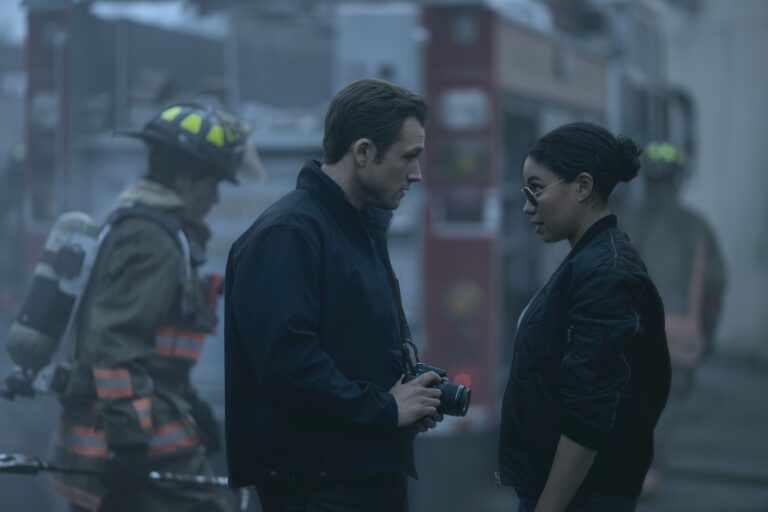Casting has a unique magic that brings stories to life. The casting director is the visionary who helps find the perfect talent to bring characters to the stage or screen. Enter CD Josh Einsohn, who has cast some of today’s most engaging shows, such as This Is Us, Ryan Murphy’s Grotesquerie, and Monsters: Lyle and Erik Menendez Story.
In this exclusive interview, Einsohn discusses his career and his approach to finding the “perfect fit” that gives life to unforgettable characters.
You graduated cum laude with a B.A. in Drama from Washington University in St. Louis, MO. In your senior year, you directed two one-act plays that won the A.E. Hotchner Playwriting Competition. Then you transitioned from stage to screen. How does directing for the screen differ from directing for the stage?
Wow, your research is very thorough! To be clear, I’ve never directed for the screen, but to your point, at the core of acting, nothing is different. It all starts with doing the homework of who you are, who everyone else is in the scene, what you want, and a sense of spatial awareness (i.e., where is this taking place?). And then it becomes very much about being loose and open to collaborating with the director and the other actors to craft the performances. There’s usually significantly less rehearsal for an on-camera performance, too, so coming prepared and ready to play is essential to crafting a performance quickly in an audition. I’m definitely always looking for actors who have done that preparation.
There is also, ultimately, a difference in fine-tuning for whatever actual space you are performing in. If you have a camera in your face, your performance can be almost entirely internal and still and the camera will still pick it up. When performing to a larger space (and theater sizes differ greatly, of course), it usually takes a bit more careful staging and being mindful of transmitting the performance to a larger room. I’ve absolutely seen tiny, still performances work brilliantly on stage, of course…Cherry Jones in “Doubt” comes to mind.
When casting for a show like This Is Us, which relies heavily on emotional depth and character development, how do you ensure the actors you choose can deliver the intense, layered performances required to resonate with the audience?
We made very, very few offers for This Is Us. Dan Fogelman and his team like to see reads, and my colleague Tiffany Little Canfield and I fully support that. She actually cast the pilot before I joined the team, and she told me how the series regulars had to come earn those roles. Besides, the fun part of our job is when we get to work with an actor! Interestingly, on that show, one of the pitfalls actors would fall into was that when they would watch the show, they’d have a huge emotional response (along with most of the viewing audience). They would then bring that into the audition room with them, and we’d have to help them get back to the layered performance tone of the show, which was very internal and subtle most of the time.
I often refer to the “thought bubble” over an actor’s head. Is it full? If it is, it usually means they can even be completely still but their internal life is quite active and that draws me in because I want to know what they are thinking! (HINT: I feel the same way about headshots.)
How does a casting director secure a project? How did you land the opportunity to work on Ryan Murphy’s Grotesquerie?
There are a lot of ways casting directors land a gig, but it’s often a referral from another producer to a producing friend or a studio’s casting department will make suggestions that they think would be a good match for that producer’s taste and work style. In this case, it was Stephanie Levinson of 20th TV Casting who has worked with Ryan on a lot of his projects who made the recommendation since she had also worked with us extensively. Then, Tiffany and I had a meeting with Ryan to discuss a project, very much our version of an audition, and by the end of the meeting, he was already starting to talk about scheduling things with us.
From there, he invited us to cast Monsters: The Lyle and Erik Menendez Story and then told us he had more projects coming up, including Grotesquerie and, for something completely different, Doctor Odyssey. It’s exciting for us to work in his world because he has such a depth of appreciation for and broad knowledge of actors. The words are delicious, and I get why actors at all levels want to come be in his world.
Love, Victor explores important LGBTQ themes and representation. How did you approach casting for such a meaningful and diverse project, and what considerations did you keep in mind to ensure authentic representation of the LGBTQ community?
I quite literally lost a great deal of sleep over the casting of Love, Victor! I am gay and it was important to me to get that cast right. but even the meaning of “right” was a hard one to pin down. We even consulted with GLAAD about best practices, but there were always challenges. First, we wanted to cast actors as young as possible and, speaking from personal experience, not everyone knows where their journey is taking them at that age. Second, it’s highly illegal (not to mention pretty creepy!) to ask someone’s sexuality during the audition process. If someone volunteers the information or they are open publicly, great! We also eventually got permission to include in our breakdowns that we encouraged LGBTQ+ actors to submit, and that provided a permission structure to volunteer the information without it being too awkward or in any way mandatory. The balance between what is legal and what is appropriate and what is relevant is a hard one to achieve. I hope we came at least close-adjacent.
Interestingly, something happened during the pandemic (I’m guessing something social media-related), and suddenly young actors were comfortable using the label “queer.” I think it gave them the ability to acknowledge that they weren’t straight without having to put too specific a label on themselves, personally or professionally. But it made the last two seasons much less stressful to cast because more actors were willing to share that information. It was a beautiful silver lining to a very challenging time (for everyone, not just me!) to see that openness and confidence. I wish I’d had that in my younger days.
Ultimately, what’s most important is whether or not the audience believes an actor as the character and I’m very proud of our young cast and think they were fantastic in the roles (and all lovely humans, too!).
After doing some production assistant work, you began your career as an intern at Burrows and Boland, eventually being promoted to assistant on The Polar Express. Later, you were hired as a casting associate on The West Wing, where you discovered that your true passion lies in casting episodic television. What is it about casting episodic television that you find so fulfilling?
It is magical having been part of The Polar Express, and my eternal thanks to Victoria [Burrows] and Scot [Boland] for giving me my start in casting! My daughter was about four months old and I put it on at Christmas and she watched the whole thing and then got excited for Santa, who I hadn’t even shown her yet! Archetypes resonate for a reason, and being part of a movie that people watch every year and seeing my name in gold letters at the end always gives me the warm fuzzies. But that movie is, to me, a less common example of a feature film that the audience develops a long-term relationship with.
I think there is something so special about creating a world and then growing it out bit by bit and having the viewers’ relationship to the characters keep growing. Being invited into someone’s home week after week, year after year… that’s just special to get to be a part of. Coming in to the fifth season of The West Wing and being a tiny part of continuing to tell that story is still a life-changing event. It was and is my favorite show, and I got to be in the room as we grew out the existing world and added the Santos and Vinick campaigns.
Back to This Is Us, yes the major players were beloved, but I also loved hearing about everyone falling in love with big characters who were introduced later, like Deja (the wonderful Lyric Ross) and even the smaller roles. Like, I can’t tell you the number of people who told me that they choked up when the mailman (played by Bill Chott) found out that (SPOILER ALERT) William had died. I think he had four lines or something, but he made an indelible mark on the people watching. Or another thing I loved about Love, Victor is that Love, Simon felt too compact to me. They told so much story in such a short time (beautifully, but still), and we had the chance to really flesh out Victor’s journey and then let everyone else in the world develop more fully, as well. Even limited series give so much more runway to draw you into a world and let you live there awhile.
How do you collaborate with directors and producers during the casting process to ensure their vision is met?
Each creative team has their own way of working, so the first thing to do is establish what their starting point is. Did they have someone specific in mind, even if that person isn’t available or really right for a role, maybe we can use that as a thread to start pulling on and see where it leads. Or for some producers we work with, they describe more the atmosphere they want to create and what a character brings to it and it’s on us to bring them people who feel like what they’re asking for. Some producers will see actors that they love but just aren’t what they had in mind for this particular part, so we keep looking with their feedback. Other times, they’ll fall in love with an actor and then adjust the story/script/dialogue accordingly. For example, Micaela Diamond’s version of Sister Megan was not what was on the pages of Grotesquerie, but once Ryan worked with her in the room, he knew she was right for the show and adjusted the character for her. And, speaking as a fan here, I totally agree! She and Niecy Nash are a fantastic and unexpected duo that you have not seen on TV before.
Once we really get to know someone’s taste and how they work, it gets easier over time to know who they’ll likely respond favorably to. This is why you see a lot of creatives work with the same casting team over and over again. Developing the shorthand and the trust can be tricky, so if you find an easy rhythm, it’s a lot of fun to keep working together.
How do you approach building the ensemble cast for a series, ensuring that all the characters have strong chemistry with one another?
The metaphor that I keep circling back to is that it’s like we’re putting together a musical group, and in any good script, there’s a music to it that we need to serve. Sometimes you’re putting together a rock band, sometimes it’s a jazz ensemble and sometimes it’s an orchestra. Everyone has to come together and be able to play the music… but every once in a while, it’s exciting to see what happens when you mix up styles a little and end up with someone who brings an unexpected “music” who still works beautifully with the rest of the ensemble.
I worked on an Apple series recently called Me that starred tween actors, and we did extensive chemistry reads to make sure our leads worked well together. The fun part was that we had seen kids from literally all over the globe and didn’t have any limitations put on us. We wound up having a couple days of Zoom chem reads, and even over Zoom we could tell that Lucian-River Chauhan and Abigail Pniowsky were going to play beautifully off each other, and the season worked because they carried it together on their tiny shoulders so well!
It’s exciting being in the room (since we can do that again!) and seeing someone just throw down an amazing performance. We did a chemistry read with Sterling K. Brown and Jon Beavers for a role in the upcoming Paradise, and Jon came in and dove all the way in and left no doubt that we’d be casting him. It was electric.
When casting a lead role, what qualities are non-negotiable for you, and how do you identify those in an audition?
It depends on the role and the show but, ultimately, I have to make sure I’m watching the auditions as a fan of the show and not just an employee. Do I want to welcome this person into my life every week or for many hours on end for a binge-type show? And the longer I do this, the more it becomes, “I know it when I see it.” I remember being on a panel and we got a question about why the same people get to be leads over and over again since there are so many talented actors. I agree that there are so many talented actors and the vast majority of roles are not leads so there are a lot of opportunities for those multitudes to get cast in roles that are often still quite delicious. But while I think the concept of who can lead a show is (slowly) broadening, there are still only so many people who have that thing. You can’t buy it. You either have it and know how to locate the “on” switch or you don’t. It’s exciting for us to see actors who we’re privately cheering for step into their full selves and own their talent and charisma.
For example, being in the room when Nicholas Chavez and Cooper Koch read together to play Lyle and Erik Menendez… I remember thinking that I hoped everyone else was seeing what I was seeing because the talent was undeniable, but so was that ineffable quality that made me need to watch them. As it turned out, yes we were all seeing the same thing and we were done looking once they left the room.
Are there any particular trends in television casting that you’ve noticed recently, and how do you adapt to those shifts in the industry?
I’ve been fortunate enough to work on projects where talent tends to win the day, and I like to continue believing that that’s the only trend that matters for talent.
In terms of trends about the process, obviously a lot more of it is online these days. But as a note of encouragement to actors, something about sharing self tapes or Zoom auditions has resulted in a change in attitude I’ve been wanting for years. For some reason, when actors would come in the room with producers, often a performance would have to be perfect by the end of the audition or someone wouldn’t get the role. I always found that crazymaking because it’s not meant to be a final performance; it’s like step 2 of a much longer creative process. But then, pretty much across the board on every type of show we worked on after lockdown, we could share a self tape or Zoom audition and hear back: “Yeah, they’re great! They missed some beats, but we can fix that on the day.” Hallelujah!
We’re also less stymied when an actor we think would be great is on vacation or something on the day of auditions since they can do a self tape and send it to us in time, and then they can still be in the mix. It’s had a hugely democratizing effect.
Anything else you want to say?
I tend to overshare because I like teaching and I like encouraging actors who have chosen to work in an industry that is sort of designed to be discouraging, so I hope some of this was helpful. Just numbers-wise, it’s so hard and we know it. We say “no” a lot more than we get to say “yes.” In terms of advice, I’m a big fan of taking improv classes. Even if you think you’re never going to work in comedy, the looseness that comes with the whole “yes, and…” thing is such a helpful muscle to exercise. I’ve seen actors get a direction that seems out of nowhere in an audition or on set, and the ones who handle it best are the ones who are best equipped to go “Sure! Let’s try it!” instead of “Wait…hold on…”
And I could thank people for a whole other article! A short list would include Dawn Steinberg and Delia Frankel of Sony TV Casting for helping get me out the door on my own, Laura Schiff and Juel Bestrop for helping me find my own creative taste and Debbie Zane for providing an example of how I try to move through the industry as a casting director. A massive thank you to Tiffany Little Canfield and Bernie Telsey for hiring me to be part of the Telsey team and changing my career trajectory. Thank you to my folks for their unquestioning support (even when I was thinking I should have picked an industry that’s more predictable) …and I better start thanking my baby girl, Molly, because I adore her and she has to share me with all you kooky folks.
Ready to find your next role with Casting Networks? Sign up for a free trial today!
You may also like:


